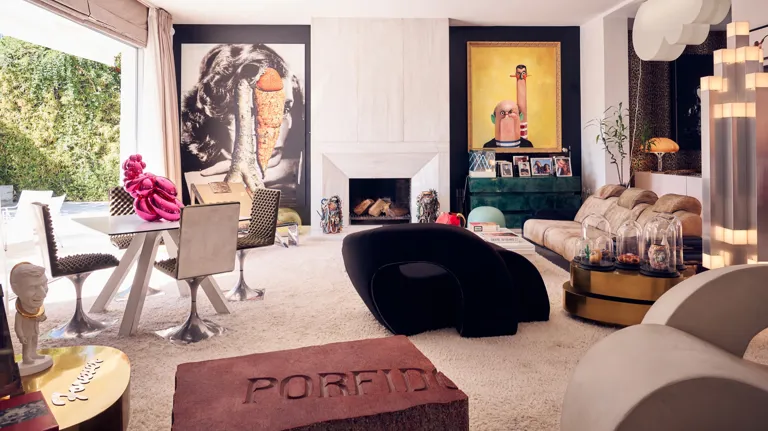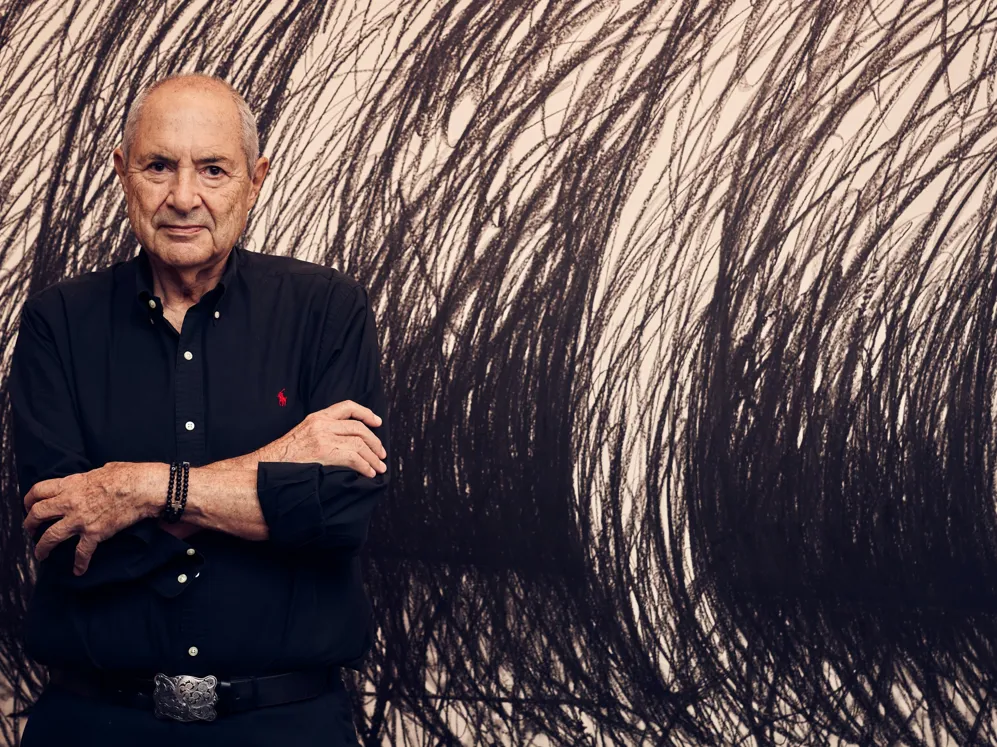
Words Allison Reiber DiLiegroImages Claus Brechenmacher & Reiner Baumann
Throughout Dakis Joannou’s life and work, the Cypriot industrialist, collector, and hotelier keeps the human element at the fore. Over the decades, he has built rich relationships with the countless artists, designers, and curators with whom he collaborators across his ventures. It’s easy to see how: Joannou is warm, ironic, and often seems to have a laugh just beneath the surface, as if there’s a joke somewhere if you listen closely.
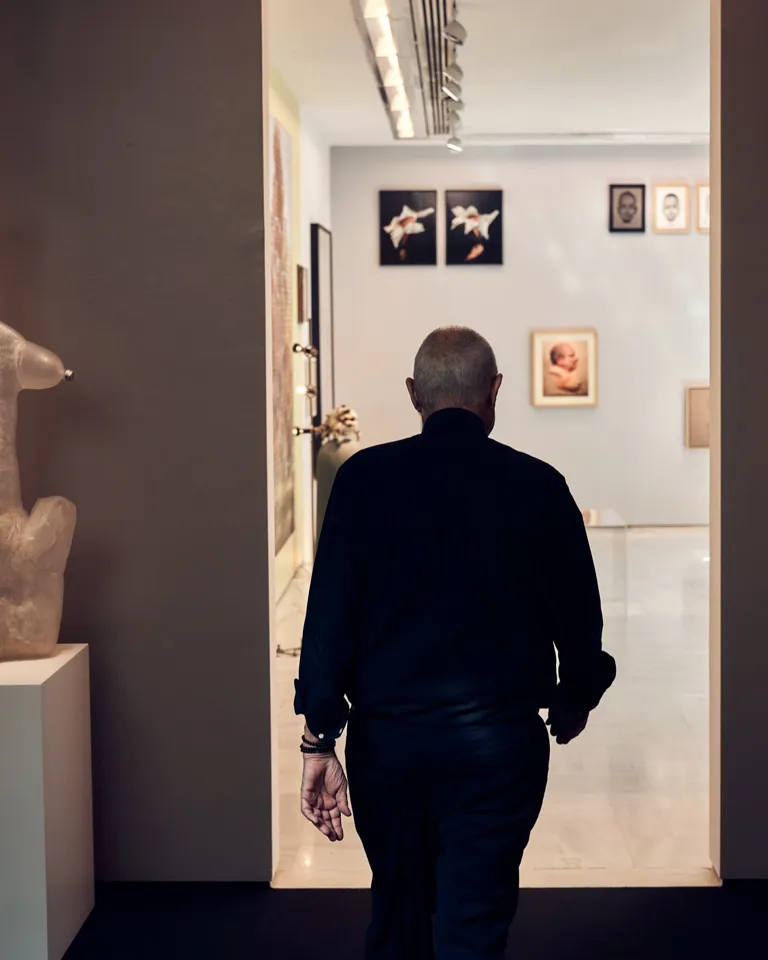
For Joannou, art is life, whether he’s moving through his home or at his DESTE Foundation for Contemporary Art (right and below)
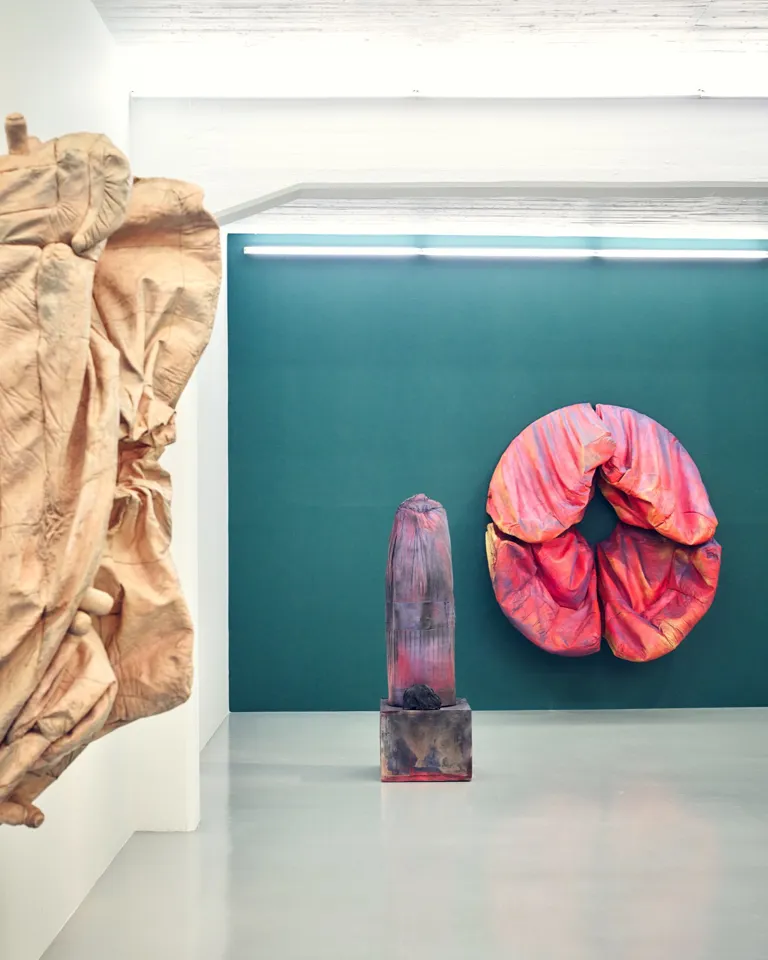
In an often-told story in the art world, Joannou founded the DESTE Foundation for Contemporary Art in the Athenian suburb of Nea Ionia in 1982, but his collection truly began when he purchased his first piece, a basketball that appears to float in mid-air by Jeff Koons. Today, Joannou’s collection has grown to approximately 1,500 pieces, including works by Maurizio Cattelan, Jenny Holzer, Kaari Upson, Ashley Bickerton, and many by Koons, now a close friend. Each summer, the foundation installs a unique, site-specific exhibition inside a former slaughterhouse on the Greek island of Hydra as DESTE Project Space Slaughterhouse.
Naturally, this robust collection makes its way inside his hotels, too. Joannou is the founder of the bold, boundary-pushing DONKEY Hotels & Resorts group, which includes Periscope, New Hotel, and Semiramis in Athens, as well as Noūs Santorini on the Cycladic island. We sat down with Joannou to discuss his philosophy on collecting, his unique approach to hospitality, and what he hopes to accomplish yet.
Practically, yes. But sometimes I buy a piece or two and then I meet the artist later. Or I get a piece and it wears off after a while—these things happen. But the core of the collection is made of works by artists that I’m very closely connected with. And that makes a lot of sense to me. Some people don’t agree with me, but I don’t see any other way of really understanding a new piece unless you know the artist and their ideas. I’m not saying that the artist needs to explain what the piece is about. It’s to get to know the person. It’s not like collecting old art, where there’s a lot of history that you can read. The only way to really understand is by meeting the artists.
Yes, I do. Of course, some exhibitions are curated by someone else, like Jeffrey Deitch or Massimiliano Gioni. And sometimes we do it together and get all our friends involved, and that’s a lot of fun.
Positively surprised? No, I expected them. Negatively surprised, sometimes.
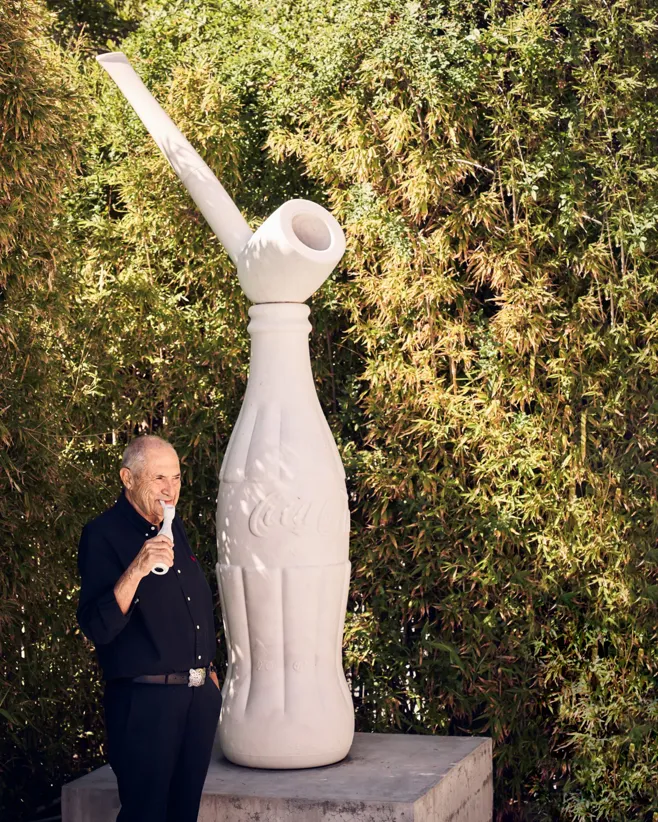
Joannou uses art to see life through a different lens
It’s an acronym for “international and Greek contemporary art directors.” But it also means “look” and “tie up” like “tying somebody up.” It’s whatever it means to the reader.
My main interest is to share ideas, engage in dialogue, and offer opportunities for people to see things from a different angle. I hope to express my ideas and the artists’ ideas in a way that could even cause someone to look at his life in a different light.
No. I wish I were, but I’m not. To be an artist you need commitment, a huge commitment. And I have neither the talent nor the commitment to be an artist.
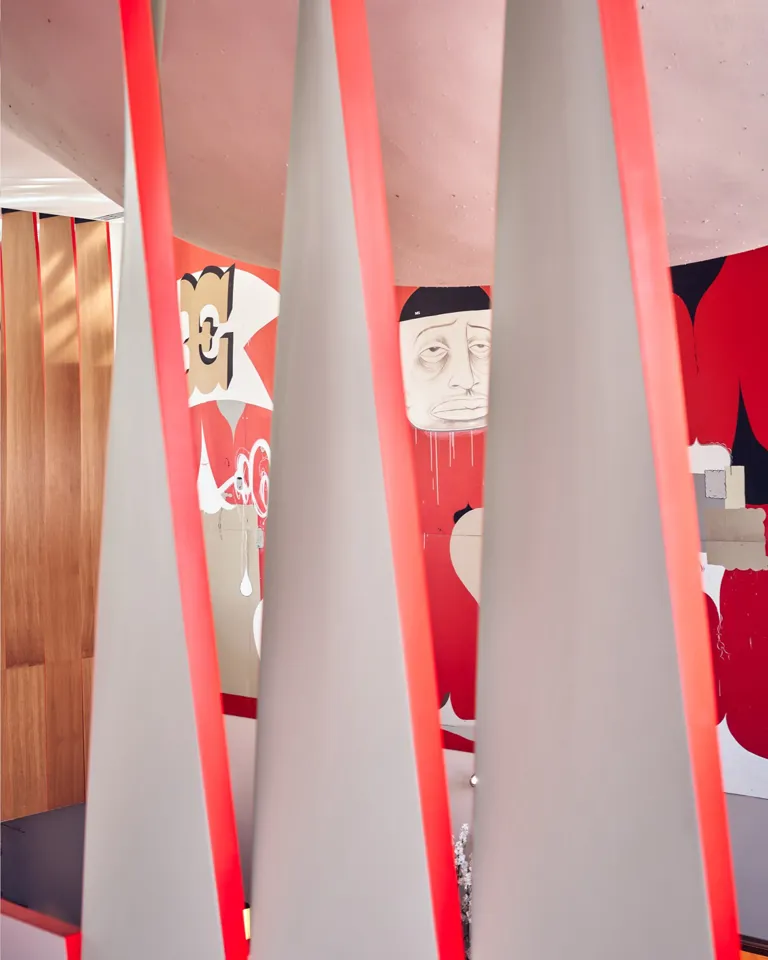
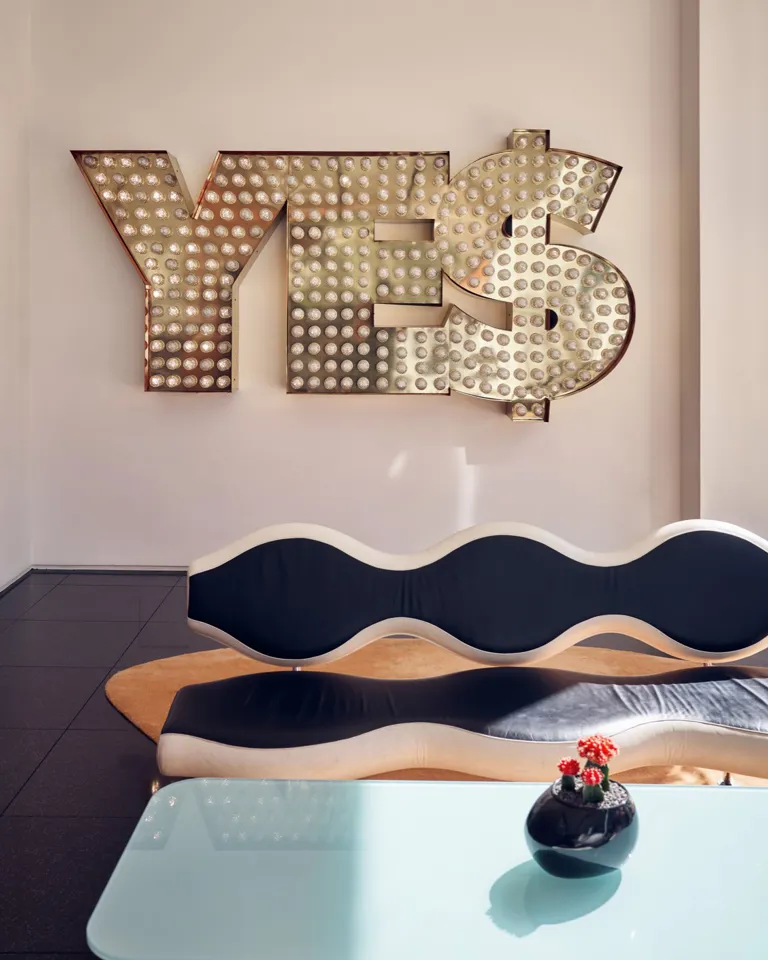
DONKEY Hotels & Resorts are fearless representations of creativity in action
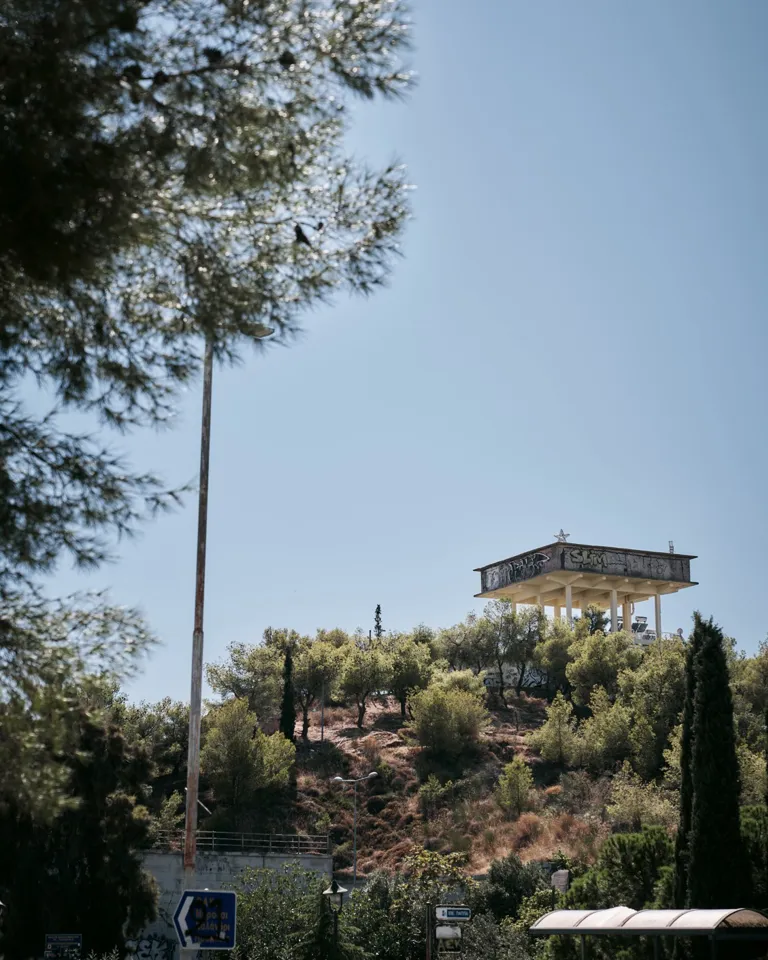
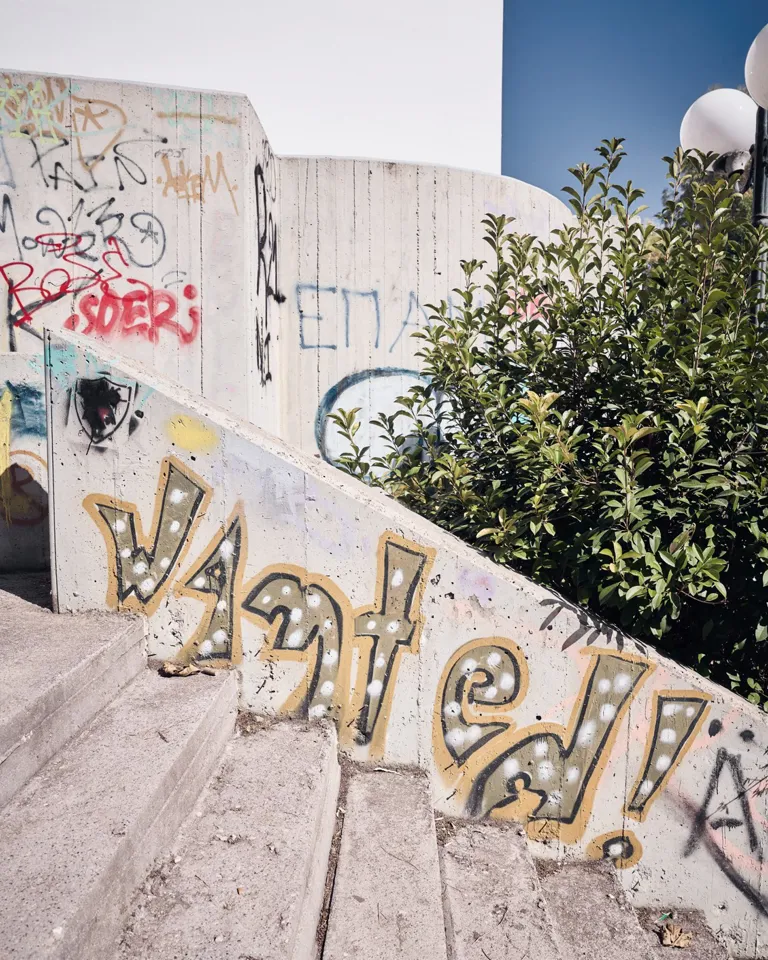
Ubiquitous and provocative, graffiti in Athens, like this statement near the DESTE Foundation, reflects the creativity and say-it-loud passion of the city's residents.
In the late 1970s, I had the opportunity to develop a hotel project. Not long after that, Greece entered the EU so we believed that there was a bright future for the country. But the DONKEY Hotels & Resorts Group was much later, more than 20 years later.
The concept was to involve artists from the very beginning. With the Semiramis Hotel, which we acquired just before the Olympic Games in 2004, our idea was to engage someone who had nothing to do with architecture—a designer—to turn the hotel, the building, into an object.
So, I asked Karim Rashid, who is a friend of mine, if he could take it. We proceeded to create something that was an extension of his work as a designer. And then we incorporated some art from the collection that fit his design.
I think it’s very challenging to think from the point of view of design. This is what I wanted to do: to really challenge someone—an artist or designer—to go beyond their limits and open a new horizon, and that’s what I did.
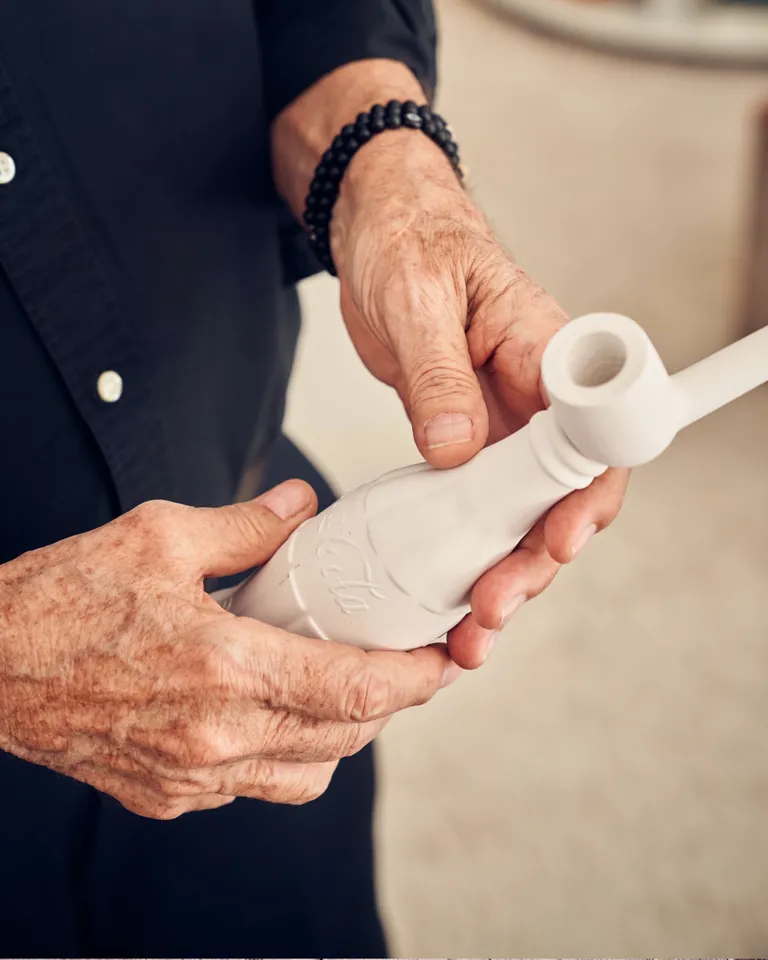
One of the world's leading collectors of contemporary art, Joannou is not afraid to create his own works, as he did with this Coca-Cola pipe.
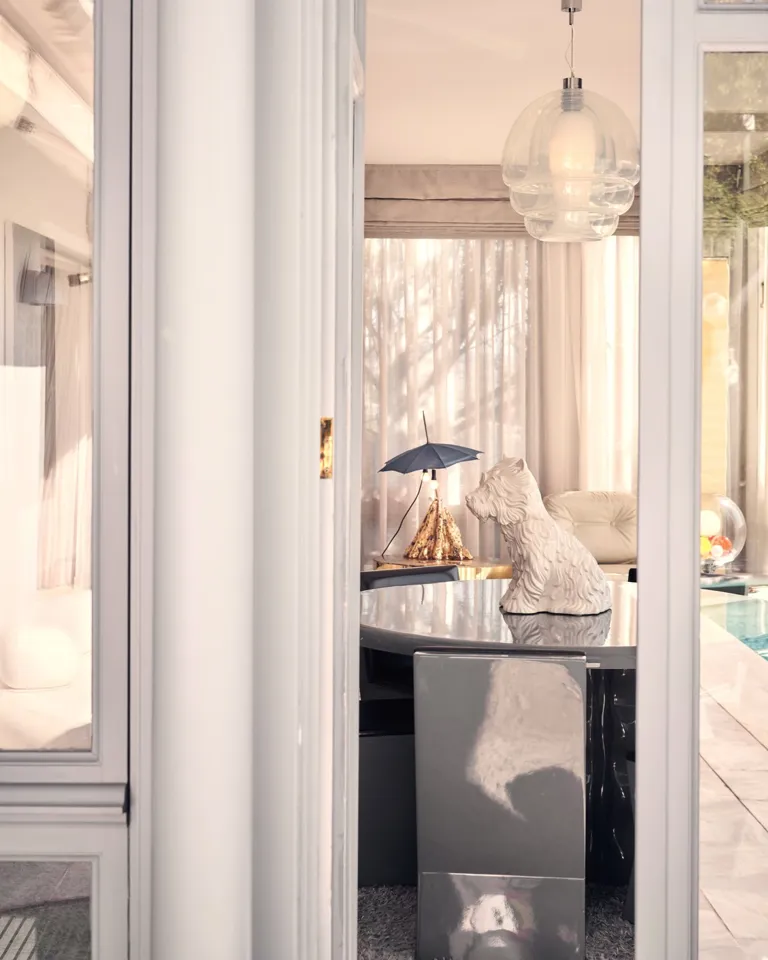
Athens is a magical city. It’s a place where you take a boat for 15 minutes and you’re in a different world altogether. And the people of Athens are very warm, very welcoming.
I still go to the office, but for fewer hours than before, and I spend time at DESTE. I’m also at home dealing with personal things, like the little bits that artists have sent me over the years. I need to kind of put them in water so they survive.
Yes, all the time. It’s what I feel; it’s like an installation every time. It’s the same with our program at DESTE. We decide very spontaneously what show we’re going to do. We don’t need to go through any procedures or committees to decide.
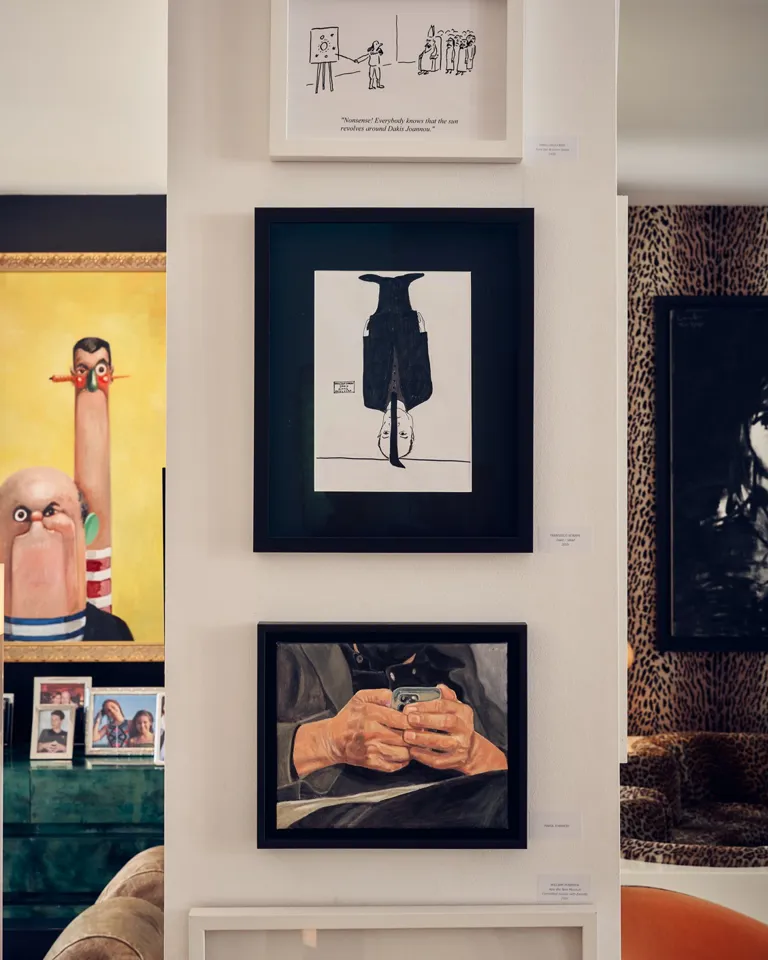
All in the family: Joannou's daughter, Maria, created a framed work of Dakis’ hands and his phone, which hangs in his home.
It’s funny, I have 4 kids and 13 grandchildren, and everything is open in the house. Even when my children were young and having all these wild parties, there was not a single bit of damage to any piece. Literally nothing.
Oh no, they’re not good kids! I just think people have an inherent respect for art. That’s it.
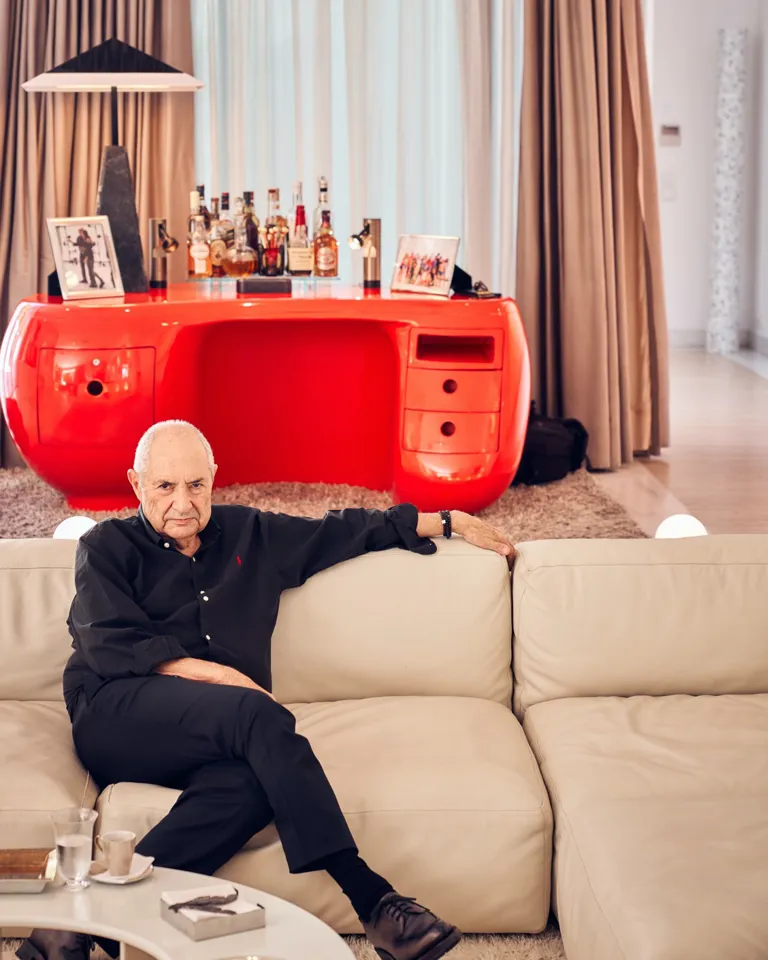
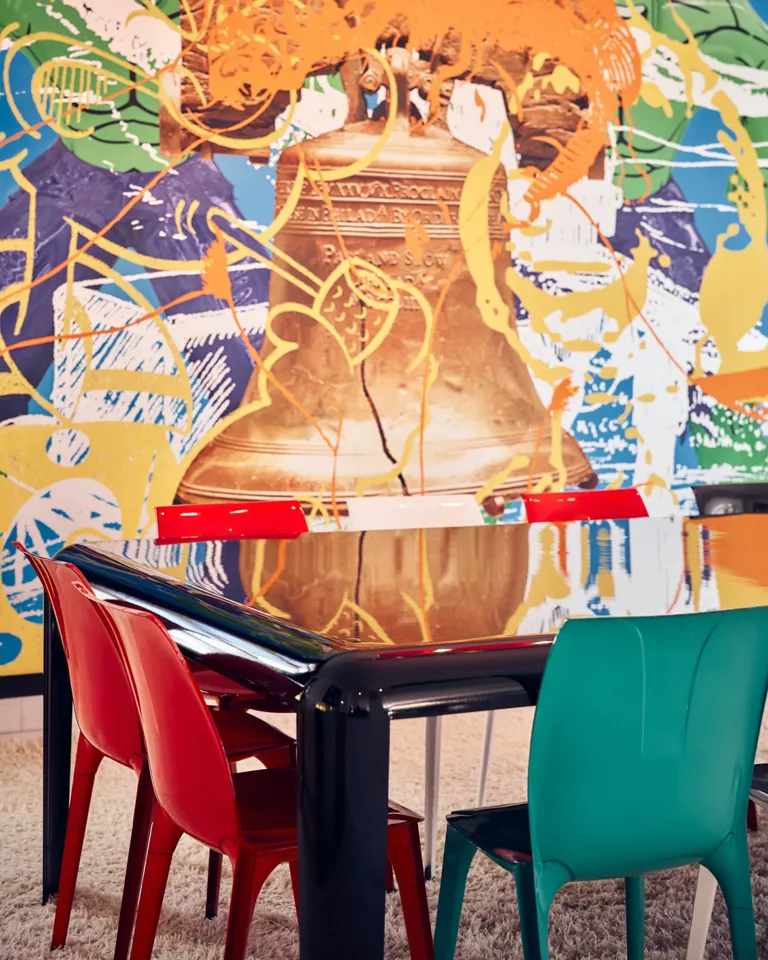
Home or gallery? For Joannou, the two are one
